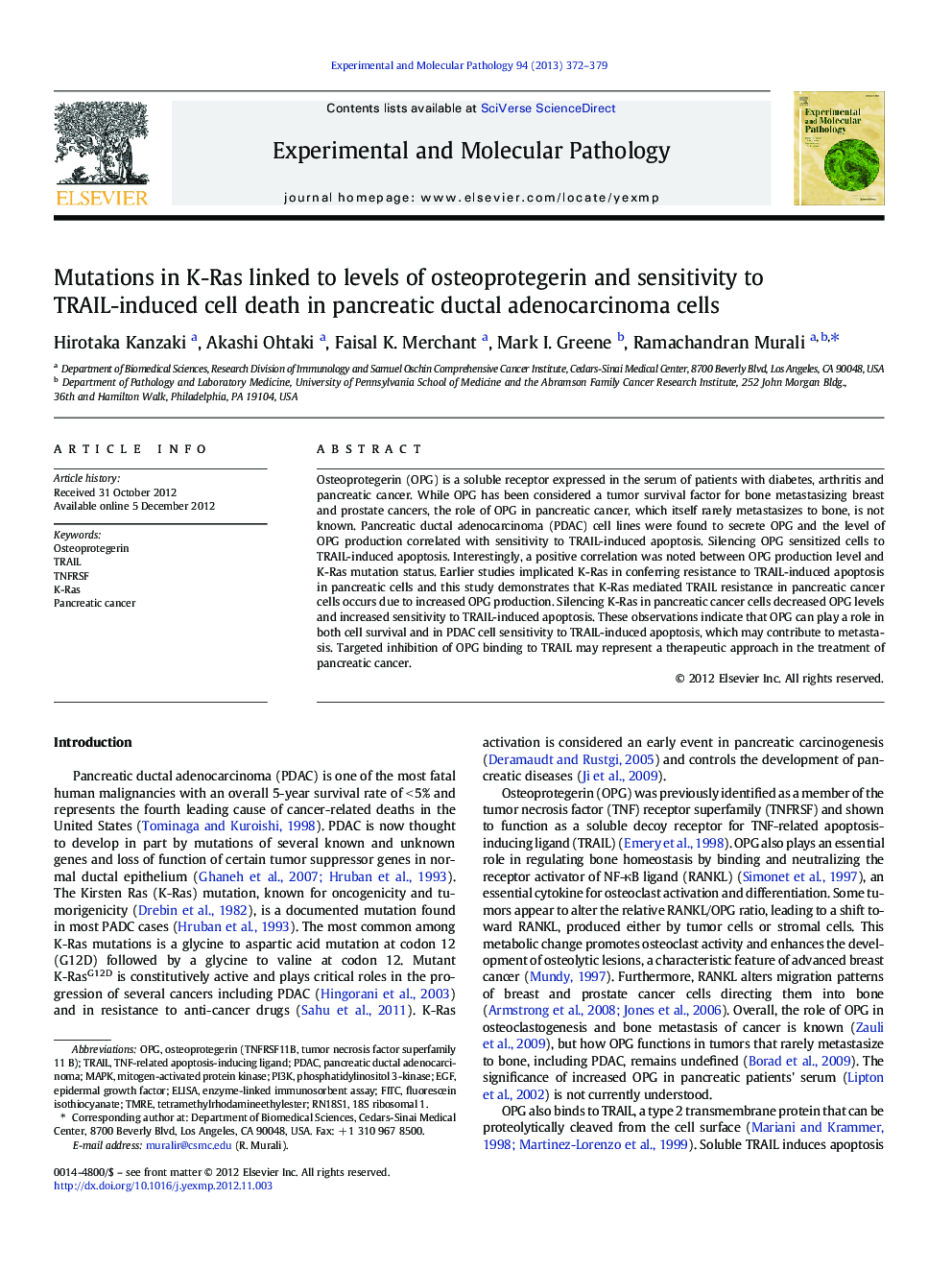| Article ID | Journal | Published Year | Pages | File Type |
|---|---|---|---|---|
| 2774962 | Experimental and Molecular Pathology | 2013 | 8 Pages |
Osteoprotegerin (OPG) is a soluble receptor expressed in the serum of patients with diabetes, arthritis and pancreatic cancer. While OPG has been considered a tumor survival factor for bone metastasizing breast and prostate cancers, the role of OPG in pancreatic cancer, which itself rarely metastasizes to bone, is not known. Pancreatic ductal adenocarcinoma (PDAC) cell lines were found to secrete OPG and the level of OPG production correlated with sensitivity to TRAIL-induced apoptosis. Silencing OPG sensitized cells to TRAIL-induced apoptosis. Interestingly, a positive correlation was noted between OPG production level and K-Ras mutation status. Earlier studies implicated K-Ras in conferring resistance to TRAIL-induced apoptosis in pancreatic cells and this study demonstrates that K-Ras mediated TRAIL resistance in pancreatic cancer cells occurs due to increased OPG production. Silencing K-Ras in pancreatic cancer cells decreased OPG levels and increased sensitivity to TRAIL-induced apoptosis. These observations indicate that OPG can play a role in both cell survival and in PDAC cell sensitivity to TRAIL-induced apoptosis, which may contribute to metastasis. Targeted inhibition of OPG binding to TRAIL may represent a therapeutic approach in the treatment of pancreatic cancer.
► PDAC cells secrete soluble OPG. ► OPG reduces TRAIL sensitivity in PDAC cells. ► Blocking the expression of OPG sensitizes TRAIL activity. ► Active K-Ras blocks TRAIL-induced cell death through OPG production.
